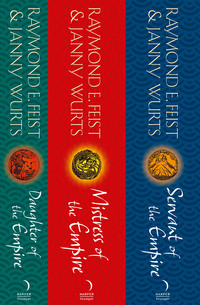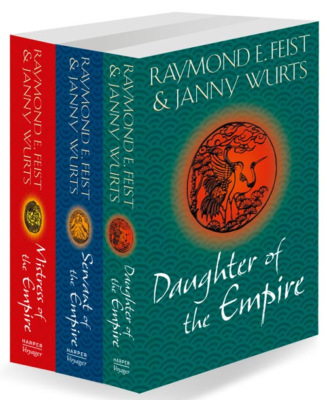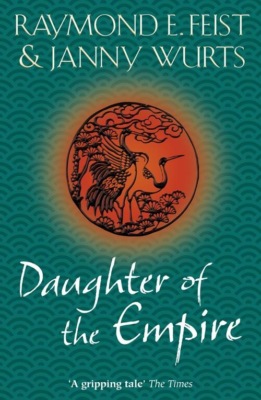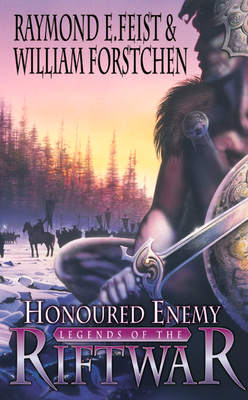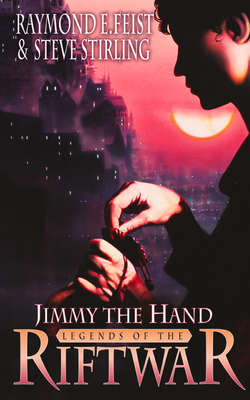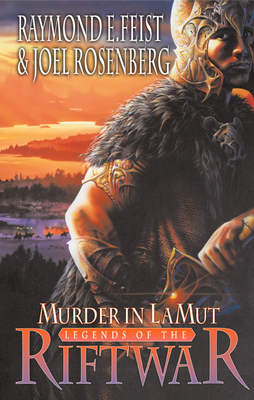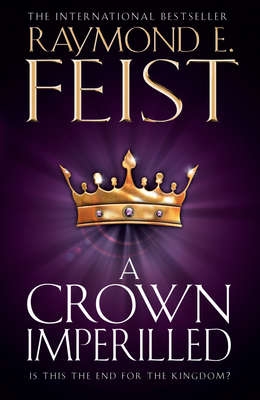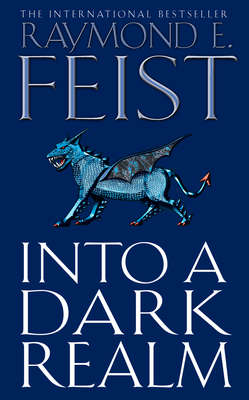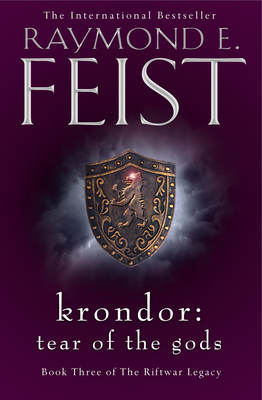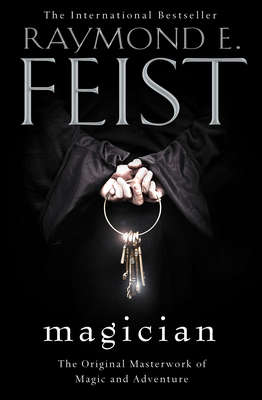Kitabı oku: «The Complete Empire Trilogy», sayfa 15
• Chapter Eight • Heir
The baby kicked.
For a moment Mara’s eyes opened wide. Then she relaxed, laid aside the parchments she had been reviewing, and patted her rounded middle, smiling slightly. Her child was nearly due. She felt as cumbersome as a needra cow, though Nacoya still insisted she had not gained the weight she should. Mara shifted upon her mat in a vain effort to find a more comfortable position. She prayed to the goddess of fertility that the old midwife’s efforts before conception had ensured a son. Let it be a boy child, so that she would not have to encourage attention from her husband to gain an heir for the Acoma.
The baby kicked again, vigorously, and Mara gasped. She waved away the solicitous maid who hovered nearby, and reached for the parchments. Already this child within her seemed restless, as if he could force his way into life with his tiny feet and fists. He, Mara thought, and a smile touched her lips. He would indeed be a son, to kick so hard in the womb; and he would lead her house to greatness. He would be Lord of the Acoma.
A shout from outside broke Mara’s reverie. She nodded, and the serving maid quickly opened the screen, letting in a hot breeze, strong with the dry smell of dust from the fields. Mara snatched, but too late, and the parchments listing Jican’s success in marketing the first cho-ja goods scudded across the floor. She murmured a mild imprecation, but not for the reports, which her runner bent to gather. Across the clipped lawn beyond the screen marched a party of warriors, with Buntokapi boisterously leading. His hair was spiked with sweat and his tunic frayed, a casualty she could have expected from the rigours of a week-long hunt. And as usual he would visit her chambers after cleaning his weapons but before taking time to bathe. Mara sighed. The days had been quiet with her Lord gone. Now she prepared herself for confusion.
As the hunters drew nearer, Mara gestured. Two maidservants bent and helped her awkwardly to her feet. Misa, the prettier one, had damp palms already; Mara sympathized. Her husband’s presence often made the girls jumpy, since he might drag any one of them off to his bedchamber. At least her pregnancy had freed her of that odious responsibility. With a flash of malice, Mara made a mental note to ask Jican to buy ugly slaves the next time Bunto sent him to the auctions for girls.
The hunters reached the gravel path. The jingle of their gear seemed louder as their manner and voices became more subdued in the presence of their mistress. Yet their excitement remained high, with Buntokapi not in the least restrained. He smelled of the woods. Mara saw dried bloodstains on his sleeves. He waved in her direction, then pointed over his shoulder, like an artist unveiling a masterpiece. The slaves who trailed him carried a long pole, from which hung a matted bundle of brindled orange-and-grey fur. Mara stepped away from the support of her maids as she recognized the white-masked eyes and fanged muzzle of a sarcat. The deadly nocturnal predator ranged in the rain forests southwest of the estate. Fearfully swift, the creature was a powerful killer, a terror to herders because domestic needra made easy prey and sarcats had no fear of humans. Then Mara noticed an arrow marked with the Lord’s green stripes pierced through the creature’s shoulder, just behind the massive jaws. By the shaft’s position she guessed Buntokapi had stood in the path of the beast’s charge, then dropped it with a single bowshot. The feat was impressive. Despite his other qualities, Buntokapi had displayed great courage and formidable skill with a bow.
Looking from his kill to his broadly smiling face, for a moment Mara could almost forget that the man was utterly lacking in sensitivity. He disliked poetry, unless it was ribald. His taste in music ran to the common – low minstrels and folk tunes – with no patience for the elegance of Grand Do theatre or opera. His appreciation of art was nonexistent unless the subject was erotic. Yet in the hunt he excelled, and not for the first time Mara regretted that Tecuma had been too busy with Halesko and Jiro to train this, his third son. As much as she despised Buntokapi upon occasion, he had much raw potential. Had he been instructed in the manners and propriety befitting one born to the Anasati name, he might have become a man of substance. But her regret lasted only until Buntokapi reached the estate house.
He swaggered mightily, a little drunk from tanlo berry wine imbibed along the route home. Stinking of campfires, sweat, and whatever he had eaten for breakfast, he leaned upon the doorpost to his quarters and waved to his slaves, who deposited the sarcat’s corpse at Mara’s feet. ‘Leave us,’ he commanded his guard.
As his warriors departed, he stood erect with his fists on his hips and shouted, ‘There, what do you think, my wife, heh? That is some beast, is it not?’
Mara inclined her head, politely concealing revulsion. The kill stank as badly as the hunter, with buzzing insects clustered on the eyes and limp tongue, while carcass and pole dirtied the newly waxed floor. Anxious to be rid of it, and the man as well, she attempted flattery. ‘My Lord shows great courage and skill in defeating such a beast. Herdsmen to the south will sing your praises, Bunto.’
Her husband grinned drunkenly. ‘What do I care for the praise of stinking herdsmen, heh? I say to you the head will look splendid mounted over the writing desk where that faded banner hangs now.’
Mara bit back instinctive protest lest she invite Buntokapi’s rage upon herself. Though that banner was one of the oldest Acoma victory relics and had graced the study of the Lord of the Acoma for centuries, Buntokapi had no care for tradition. He changed things as he liked, most often in perverse malice to establish beyond doubt that he was Ruling Lord. Mara felt an unexpected stab of sadness, that desperation should have driven her to such a marriage.
‘Wife!’ Buntokapi snapped, breaking Mara from reflection. She bowed submissively, though pregnancy made her awkward.
‘I wish this sarcat’s head stuffed and mounted over my desk in my study. See to it! I must go bathe.’ Then, straightening as an afterthought struck him, he peered into the gloom of the room behind and stabbed a pointing finger at Misa. ‘You, girl, come along. I need someone to wash my back, and my attendant is ill.’
The pretty maid left her mistress’s side. All knew her duties would be more personal than merely soaping down her master’s back. She departed in resignation as Buntokapi spun around and strode off, leaving his kill oozing upon the threshold, over a day dead and already turning putrid. Mara fought a moment of nausea. Then, with a poise as fragile as fine china, she called the small boy who served as runner away from the corner where he cowered. Buntokapi had a tendency to cuff him for simply being in the way. ‘Kedo, fetch two slaves from the kitchens to carry this off to the butcher’s shed. Tell the assistant who prepares trophies he must ready the head. When it is completed, have him deliver it to my Lord’s study to hang where he indicated.’ Here Mara quelled another of the little sorrows that seemed a daily part of her life since her marriage. To her remaining maid she said, ‘Juna, go and carefully fold the banner over the desk and bring it to me. I will ensure it is safely kept.’
The runner departed with a patter of sandals, and the maid followed. Mara pushed a trailing strand of hair behind one ear and returned to her documents. Let Buntokapi sport with the maids and hunt and play at being a warrior; his obsessions kept him occupied, and that was to the good. That, and the confinement of pregnancy, furthered her opportunity to study the documents of commerce that came each day. Within the limits Buntokapi allowed, Mara continued to manage the affairs of the Acoma. And she learned. Every day she understood more about what truly brought a house to greatness. Thinking aloud, she said, ‘I wonder if we have recent maps?’
‘Mistress?’ said her remaining attendant.
Mara only stared fiercely at the indeterminate point between her parchments and the matted muzzle of the sarcat. The next time her Lord went hunting, or into Sulan-Qu to visit the gambling houses or the women of the Reed Life, she would search her father’s cabinets for maps. Then, catching herself short, she reminded herself that the cabinets were not her father’s anymore but the province of a husband who was her enemy.
Wine splashed, sticky red on the linens, as the horn flask thrown by Buntokapi bounced and clattered through the cutlery. He blinked once, as if amazed at his own strength, but his anger did not fade. ‘Woman, cease plaguing me!’
The power of his voice made the flames in the lamps tremble. Mara sat quietly before her husband, who had only moments before been singing clumsily along with a pair of minstrels. ‘Can’t you see I am enjoying this performance? Aren’t you always after me to read poetry and listen to music? How can I listen if you constantly nag at me?’
Mara concealed a grimace. Buntokapi’s uncritical appraisal stemmed from the fact that one of the musicians was the buxom daughter of the other; the tight-stretched fabric of her robe, and the expanse of flesh left bare by the short hem and open collar, undoubtedly seemed to add allure to their poor singing. But management of the estate must continue, and with acerbity Mara lifted the scroll she had brought out of the path of spilled wine.
‘My Lord, these decisions cannot wait –’
‘They will wait if I say they will wait!’ Buntokapi’s shout caused the servant who appeared with rags and basin to scurry about his clean-up. ‘Now be silent, wife.’
Mara sat obediently at his side while the servant finished wiping up the spill and hurried away. Red-faced, Buntokapi waved at the musicians to resume and tried furiously to concentrate on the song the girl had been singing. But the soft, unmoving grace of Mara’s presence unnerved him, as few things could. After a moment, nettled, he said, ‘Oh, what is it?’
The musicians faltered and started uncertainly into the last stanza; Mara silently handed Buntokapi a scroll, and as her gown shifted he saw that she carried six more. He quickly glanced at the first and said, ‘These are household budgets and accounts. Why bother me with them?’ He glared at his wife, unmindful that his musicians desperately wished his leave to fall silent. Lacking that, they straggled raggedly into a chorus.
‘This is your estate, my husband,’ said Mara flatly. ‘None may spend a cinti of your wealth without your permission. Some of the merchants in Sulan-Qu sent polite, but emphatic, requests for payment.’
Buntokapi scratched his groin while scowling over the tallies. ‘Wife!’ The musicians ended their lay, and he suddenly found himself shouting into stillness. ‘We have funds to pay these?’ He glanced about, as if startled by his own shouting.
‘Of course, husband.’
Lowering his voice, he said, ‘Then pay them.’ His expression darkened. ‘And why must you bring these to me? Where is Jican?’
Mara gestured to the scrolls. ‘You ordered him not to address these things to you, husband. He obeys, but avoiding him cannot resolve these matters.’
Buntokapi’s irritation turned to anger. ‘So then my wife must pester me like a clerk! And I suppose I’ll have to give my approval each time something needs to be done, heh?’
‘It is your estate,’ Mara repeated. She watched, coiled with tension, as she waited for an opening to suggest that he turn the management of the house over to her.
But instead he sighed with a mildness she had never seen. ‘That is true. I must put up with these inconveniences, I expect.’ His eyes strayed to the buxom vielle player, then swung back to focus upon Mara’s thickened middle. The contrast inspired. ‘Now, you must take care not to become overtired, wife. Go to bed. If I must study scrolls, I shall keep these musicians playing for my amusement until late.’
‘Husband, I –’ Mara stopped, abruptly aware she had made a misjudgement as Buntokapi surged to his feet. He caught her shoulders and dragged her roughly upright. Her hands dropped instinctively to cradle her middle, to protect the unborn life growing there. The gesture forestalled her husband’s violence but did not stay his fury.
The musicians looked on in frozen discomfort as Buntokapi’s fingers tightened, painfully twisting the flesh of her shoulders. ‘Wife, I warned you. I am not stupid! These accounts shall be seen to, but at my pleasure.’ His rage seemed to swell, to feed upon itself, until it became a tangible thing shadowing the atmosphere of the room. The moonlight seemed to darken beyond the screens, and the musicians set aside their instruments, cowering. Mara bit her lip, frozen in the grasp of her husband like the gazen before the relli. He shook her, that she should know the power of his strength. ‘Hear me, wife. You shall go to bed. And if you ever think to cross my will, even once, I shall send you away!’
His fingers released, and Mara all but fell to her knees as a stab of fear shot through her. She hid the emotion behind a bow low enough to have been slave girl’s, and pressed her forehead to a floor still sticky with wine. ‘I pray my husband’s forgiveness.’ The words were fervently sincere; if Buntokapi saw fit to exercise his right as the Ruling Lord of a troublesome wife, and she were sent from the estates to an apartment with a pension and two maidservants, the affairs of the Acoma would pass forever from her influence. Her father’s proud family would become what this coarse man chose, with no hope of escaping Anasati vassalage. Afraid to tremble, afraid to even breathe, Mara waited motionless, her face a mask to hide the terror in her heart. She had hoped to bore Buntokapi with expenditures he did not understand, encourage him to grant her control and freedom to put some plans in motion. Instead, she had nearly precipitated disaster.
Buntokapi regarded her bent back with distaste until the promise of what lay beneath the robes of the vielle player distracted him. Bored now in truth, and annoyed by the pile of scrolls awaiting his attenion, he shoved his wife with his toe. ‘To bed now, wife.’
Mara rose awkwardly, relief eclipsed by an anger at herself. Her pushing her husband had been partly due to pique, that she and the affairs of the Acoma could be of less consequence than the jiggling bust of a minstrel girl. But the results of her loss of control had almost set the future of the Acoma in the hands of a brute and an enemy. Hereafter caution would be necessary, extreme cleverness, and no small amount of luck. With a panicky feeling, she wished for the counsel of Nacoya; but the old woman was long asleep, and now as never before, Mara dared not disobey the direct orders of her Lord by sending a servant to waken her. Frustrated, and more uncertain than ever before in her life, Mara smoothed her wrinkled robe straight over her shoulders. She left the room with the beaten carriage of the chastised and subservient wife. But as the music began raucously behind her, and Buntokapi’s eyes fastened once more on the cleft bosom of the vielle player, her mind turned and turned again. She would endure; somehow she would find a way to exploit her husband’s weaknesses, even his overpowering lust. If she did not, all was lost.
‘Wife?’ Buntokapi scratched himself, frowning over a piece of parchment upon his writing desk.
‘Yes, Bunto?’ Mara concentrated on her needlework, partly because needle and thread took on a life of their own in her grasp – forever tangling into knots – but mostly because she must seem the image of meekness and obedience. Since the incident with the musicians and the household accounts, Buntokapi had watched her critically for the smallest sign of disobedience; and, as the slave girls whispered in corners, often he saw things as his mood of the moment demanded. Mara stabbed her needle through a robe for her unborn child, though the quality of the work at best could be called poor. No heir of the Acoma would wear such a rag. But if Buntokapi thought sewing an appropriate pastime for his pregnant wife, she must play along with at least a semblance of enthusiasm.
The Lord of the Acoma shifted knobbly knees beneath the desk. ‘I am answering my father’s letter. Listen to this: “Dear Father: Are you well? I have won all my wrestling matches at the soldiers’ bath at Sulan-Qu. I am well. Mara is well.”’ He looked at her with a rare expression of concentration on his face. ‘You are well, aren’t you? What should I say next?’
Barely masking irritation, Mara said, ‘Why don’t you ask if your brothers are well?’
Oblivious to sarcasm, Buntokapi nodded, his expression showing approval.
‘Master!’
The shout from outside almost caused Mara to prick her finger. She set the precious metal needle out of harm’s way, while Buntokapi moved with startling speed to the door. The caller cried out again, urgently, and without waiting for servants Buntokapi pushed open the screen to reveal a sweating dust-covered soldier.
‘What is it?’ demanded Buntokapi, instantly less irritated, for concerns of arms and war were easier for him than those matters of the pen.
The warrior bowed with extreme haste, and Mara noticed that his sandals were laced tight; he had run for some distance to deliver this message. Her posed role of submission forgotten, she listened as the soldier caught his wind and spoke. ‘Strike Leader Lujan sends word of a large force of bandits moving over the road from Holan-Qu. He is holding at the small spring below the pass, to harass them if they attempt to push through, for he thinks they are staging to raid us.’
Buntokapi took brisk charge. ‘How many are there?’ And with a presence of mind and consideration he had never shown to his household staff, he gestured, allowing the tired runner to sit.
Mara murmured for a servant to bring the man water, while he sank to a crouch and qualified. ‘A very large force, master. Perhaps as many as six companies. Almost certainly they are grey warriors.’
Bunto shook his head. ‘So many? They could prove dangerous.’ He turned to Mara. ‘I must leave you now, my wife. Be fearless. I will return.’
‘Chochocan guard your spirit,’ Mara said in ritual, and bowed her head as a wife should before her Lord. But not even appearances could make her shrink from the dangers of the affair at hand. As Buntokapi strode briskly through the screen, she peeked through her lashes at the dust-covered messenger, who bowed in turn to his master. He was young, but scarred and experienced in battle. Mara remembered his name, Jigai, once a well-regarded member of Lujan’s band. His eyes were hard, unreadable, as he raised his head to accept the water brought by the maidservant. Mara hid a stab of uncertainty. How would this man and his fellows feel about facing men who but for chance might have been comrades rather than foe? None of the newcomers had yet faced an Acoma enemy in battle; that their first encounter should pitch them against grey warriors raised anxieties dangerous to contemplate.
She watched in frustration as Acoma soldiers hurried past the great house to fall into formation, each commanded by a Patrol Leader, who in turn took orders from their Strike Leaders, all under the certain direction of Keyoke. To the right of his plumes stood Papewaio, who as First Strike Leader would take charge should the Force Commander fall in battle. Mara could not but admire, for the Acoma soldiers acted in every way like Tsurani warriors. Those who had been outlaws blended indistinguishably into those who had been born in service. Her doubts lessened slightly. Thanks to the security afforded by the cho-ja Queen’s warriors, only Tasido’s company need remain to guard the estate. Absently Mara considered the benefits of recruiting more cousins to the Acoma colours soon. With more warriors, the command could be split, with Papewaio and another elevated to the rank of Force Leader, giving the Acoma two garrisons … A loud shout killed her thoughts. Buntokapi strode into view, his trailing servants busily buckling his armour about his stolid body. As her Lord took his place at the head of the column, Mara reminded herself: this was not her army to order about. Not anymore. Her thoughts turned in upon themselves.
The last men fell into position, hurried by the voice of Buntokapi. Fully armoured, and bearing a tasselled scabbard with his favourite sword for battle, the usually lumbering Lord of the Acoma was a typical Tsurani warrior: stocky, tough, with legs able to carry him for miles at a steady run, and enough stamina remaining to fight an enemy. Sullen and brutish in peacetime, Buntokapi was trained for war. Briskly he relayed his orders.
Mara listened from the open door of her quarters, proud of the spectacle in the marshalling yard. Then the baby kicked. She winced at the force of his unborn feet. By the time his tantrum ceased, the Acoma garrison had dashed from the estate, four hundred individuals, green armour glinting in sunlight as they rushed towards that very same ravine where Mara had sprung the trap that had brought Lujan and his outlaws into service.
Silently she prayed that this confrontation by the quiet, rippling spring would resolve as favourably for the Acoma as that first one had.
Nacoya appeared unbidden to attend her mistress’s comforts. Her old ears had not missed the commotion, and in typical fashion she brought scraps of gossip from the soldiers, things the young wife hankered to know but no longer had means to obtain. After she had sent a servant for chilled fruit and urged Mara back to her cushions, the two women settled in to wait. It was barely mid-morning, thought Mara, glancing at the cho-ja timepiece upon the table her husband had been writing upon less than a quarter hour before. Swiftly she calculated. The early morning patrol must have spotted the bandits’ advanced scouts and located their main body entering the high pass. Working out times and locations from the bits of news brought by Nacoya, Mara smiled slightly. The discussion she had precipitated between Arakasi and Keyoke on the journey to the cho-ja hive had yielded results. Among other items, the Spy Master had mentioned need for a pre-dawn sweep of the area to the west of the estate, for ruffians could easily infiltrate the mountains, avoiding Acoma patrols under cover of darkness, then go to ground during the daylight hours. The midnight departure of Lujan’s patrol ensured that men were high enough in the hills above Acoma estates by dawn so that signs of outlaw activity were swiftly detected. And the wily former bandit knew every likely hiding place between the Acoma boundaries and Holan-Qu.
Tired, suddenly, for her pregnancy was trying, Mara nibbled sweet fruit slices, while the sound of Acoma soldiers marching in haste towards the hills carried through the morning air. The cho-ja clock ticked softly, and the tramping grew faint, then fainter, until Mara could barely tell if the sound was still heard or only imagined.
At noon Nacoya poured herb tea and ordered some toasted bread and sweet berry paste brought, with fruit and kaj sung – a steaming bowl of thyza with tiny pieces of river fish, vegetables, and nuts. Anxious to please, the head cook brought the dishes before her mistress, but Mara could only absently pick at her meal.
Aware now that Mara’s preoccupation had little to do with lassitude, Nacoya said, ‘Lady, do not fear. Your Lord Buntokapi will return unharmed.’
Mara frowned. ‘He must.’ And in an unguarded moment, Nacoya saw a hint of anger and determination behind her former charge’s mask of calm. ‘If he dies now, all goes for naught …’ Instincts aroused, Nacoya sought the girl’s eyes; and Mara looked quickly away. Certain now that something was being considered here beyond her understanding, but shrewd enough to guess its bent, the old woman sat back upon her heels. Age lent her patience. If the young Lady of the Acoma chose to plot alone, then so be it. This most dangerous of plans might perish before fruition if shared, even with one loved and trusted. Nacoya observed, yet revealed nothing of the fear that twisted her old heart. She understood. She was Tsurani. And under the master’s roof, the word of the master was as law.
Buntokapi motioned his company of soldiers to a halt and slitted his eyes against the glare as two Acoma soldiers approached at a run, their armour silhouetted against a sun sliced in half by the horizon. Winded, dusty, but proud despite fatigue, the men saluted, and the nearer one delivered his report. ‘Lord, the bandits camp in the lower dell, beyond the crest where Strike Leader Lujan waits. He thinks they will move before dawn.’
Buntokapi turned without hesitation to Keyoke. ‘We rest here. Send two fresh men to summon Lujan.’
The Force Commander relayed the Lord’s order, then relaxed the columns from duty. The men fell out, removing helms and sitting at the roadside, but making no fires to reveal their presence to the raiders.
Buntokapi unbuckled his own helm with an audible sigh. While functional, it was also heavy, and ornamented after the Tsurani fashion of reflecting the deeds of a man’s life. Recently added was the band of sarcat-hide trim around the edge, to complement the flowing tail of zarbi hair that hung from the crest. Such trophies looked grand on parade, but to the young Lord’s chagrin he discovered every added ounce became onerous after a day-long march. He eased the armour from his head and raked his dark hair up into spikes with his knuckles.
Then he squatted, leaning back against a smooth outcropping by the side of the trail where his officers attended him. ‘Keyoke, what is this dell the men speak of?’
The Force Commander crouched and scribed a crude map in the dust with his dagger point. ‘Like this, Lord. The trail from Holan-Qu narrows at a small crest, enters a narrow clearing – the dell – next to a spring, just before rising to another crest, then falling to this trail, about six miles above here.’ He gave facts without mentioning the ambush the Lady had sprung to bring Lujan and his men into Acoma service.
‘Good place for a trap,’ Buntokapi muttered. He scratched at an insect bite.
Keyoke said nothing. He waited, patient in a manner only Mara might have understood, while his master loosened his sword belt and stretched. ‘Still, we must wait for Lujan’s report. Wake me when he arrives.’ Buntokapi folded his arms behind his head and closed his eyes.
With a look of veiled exasperation, Papewaio rose. Keyoke followed him saying, ‘I will post sentries, Lord.’
Buntokapi grunted approval and the two officers left their Lord to slumber. Within the hour a shout from the sentry heralded Strike Leader Lujan’s arrival in camp.
Buntokapi started awake without being called. He sat up, scratching a fresh collection of insect bites, as the dusty Lujan came before him and saluted. The former outlaw had run for six miles and yet showed no outward signs of exhaustion, other than being short of breath. Keyoke and Papewaio joined him as Buntokapi grabbed his helm, jammed it over his tangled head, and pointed cryptically at the scratches in the dirt. ‘Show me.’
Lujan hunkered down and with his own dagger added details to the little map Keyoke had drawn. ‘Six companies of fifty men have come over three different routes to this dell, my Lord. They marched here, here, and here.’
Buntokapi stopped with his hand poised over the reddening welts on his leg. ‘They did not come up to the higher vale, the one with the small lake?’
‘No, Lord.’ Lujan hesitated.
Buntokapi gestured impatiently in the gathering dark. ‘Well, what? Speak.’
‘There is something here that … is not right.’
Buntokapi scratched his stomach, lifting his breastplate with his thumb. ‘They don’t move like bandits, heh?’
Lujan smiled slightly. ‘No, more like trained soldiers, to my eye.’
‘Grey warriors?’ Buntokapi got heavily to his feet.
‘Perhaps,’ said Keyoke.
‘Ha!’ Buntokapi’s tone turned bitter. ‘Minwanabi, or my mother bore a stone-headed pup.’ To the senior officers with him he said, ‘Before I wed I knew of the feud between Jingu and the Acoma. And my father recently warned me to expect a sudden strike.’ He frowned. ‘I swear he knew this attack was coming.’ Buntokapi paused significantly, but did not share whatever else he concluded upon the matter. His voice took on a sullen note. ‘Lord Jingu thinks his men the best in the Empire and your Lord a stupid bull. And he seems to have grown cocky enough to risk my father’s ire. Yet he is not so strong and arrogant that he dares to show his true colours, heh? We shall show him he is wrong on the first two counts.’ He barked a rude laugh. ‘And right on the last.’ He looked at Keyoke. ‘I think you have a plan already, heh, Force Commander?’
Keyoke’s lined face remained expressionless as he set his dagger to the lines representing the place where the trail narrowed this side of the vale. ‘We could hold them here with little trouble, I judge, my Lord.’
Buntokapi fingered the tassels of his scabbard. ‘Better we let them come into the vale, send a company behind them, and trap them there.’
In the rapidly falling light, Keyoke studied the drawing, recalling each detail of the land remembered from his last patrol. Quietly he ventured his opinion. ‘If we sneak a company along the ridge above, we can have it in place by dawn. The bandits then could not retreat, and a quick sortie into the dell from this side might rout them.’
‘Good, but I think we do not charge.’ Frowning intently now, Buntokapi qualified. ‘We sit quiet, like frightened little birds, heh? They will go past us, deep into the little clearing, and we will leap up and rain arrows and rocks upon them, until they break.’
